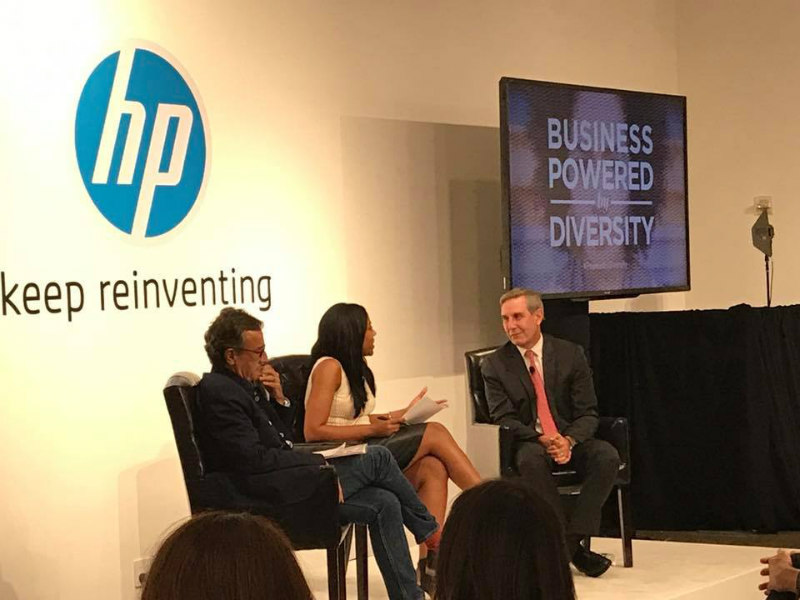Diana Marszalek 26 Sep 2017 // 2:58AM GMT

NEW YORK – After spending a year trying to boost diversity with mixed results, marketing agency heads are citing systemic problems — staid recruitment, a dearth of role models and unconscious bias among them — as reasons why the industry lags in minority hiring.
"We have to question ourselves," Farid Mokart, founder of Paris-based Fred & Farid, said at an HP-sponsored discussion on diversity in the marketing industry held Monday in New York. "We are supposed to be avant garde … to understand society. How can we do that if we don’t have the right representation of that society?
"We have no reason, no excuse to not do anything (about that)," he said.
Mokart is one of five HP marketing agency heads who, at HP’s directive, spent the last year trying to bolster diversity by hiring more women and minorities after setting specific goals – efforts that spurred female hiring but did little to improve minority representation, according to a report on the initiative released Monday.
The report, which came one year after HP CMO Antonio Lucio set the multi-year challenge in motion, found that each of the five participating agencies – Fred & Farid, Edelman (the only PR agency in the group), BBDO, Gyro and PHD – actually exceeded their goals for female representation. Women represent 61% of HP agencies’ account teams, and hold 51% of senior roles, the report found.
The report, however, found that most of the agencies didn’t achieve their 12-month minority hiring goals – the focal point of much of Monday’s discussion. Speakers, which included the heads of all participating agencies, said they see that stemming from a range of factors, including long-standing corporate norms that need to be systematically upended for the situation to change.
For Edelman president and CEO Richard Edelman, whose firm underperformed on minority representation, hiring minority talent requires non-traditional recruiting, particularly for mid-level execs (and even if it means spending more money), supporting platforms where minorities can show their work, and creating mentoring programs.
The way Gyro CEO Christoph Becker sees it, improving diversity also means creating and nurturing a company culture that welcomes diverse opinions and viewpoints – and making efforts concerted enough that minority talent see the industry as a viable option.
"There are a lot of top creative directors that we are never going to see, never going to touch," Becker said. "It’s a deep problem. We need to be magnetic. We need to be giving access."
Having women and minorities work on the full breadth of campaigns and accounts – not just the ones that target their communities – is also key to making sure their viewpoints are duly reflected, said Andrew Robertson, president and CEO of BBDO.
"For me and for us, this issue of diversity is not about representation and understanding. It’s not about empathy. It’s about different points of view being the essence of great problem solving."
Having a diverse workforce is also just a shrewd thing to do, Edelman said. "We are at a time of Charlottesville and Ferguson and I can keep going: 'How can we not have people of color expressing what is going to sell products for clients?'" he said. "You have to do this. This is an obligation. But it is also is something smart for business."
Looking ahead to 2018, HP’s Lucio asked participating agencies to narrow the focus of their diversity efforts so that increasing minority representation is their number one goal. He also challenged agencies to do that by expanding their recruitment efforts, targeting individuals from executives to college students while raising awareness of the industry and its opportunities.
None of which is easy, he admitted. "One of the biggest things we learn is if changing hearts and minds is hard, changing behavior is significantly harder," Lucio said. "You need consistency of purpose and action. You need to be able to set very specific objectives. And then you need senior management’s involvement and accountability.
"It requires discipline and rigor."
Pictured: (L to R): HP CMO Antonio Lucio, ColorComm founder Lauren Wesley Wilson, Edelman CEO Richard Edelman



































.jpg)


















